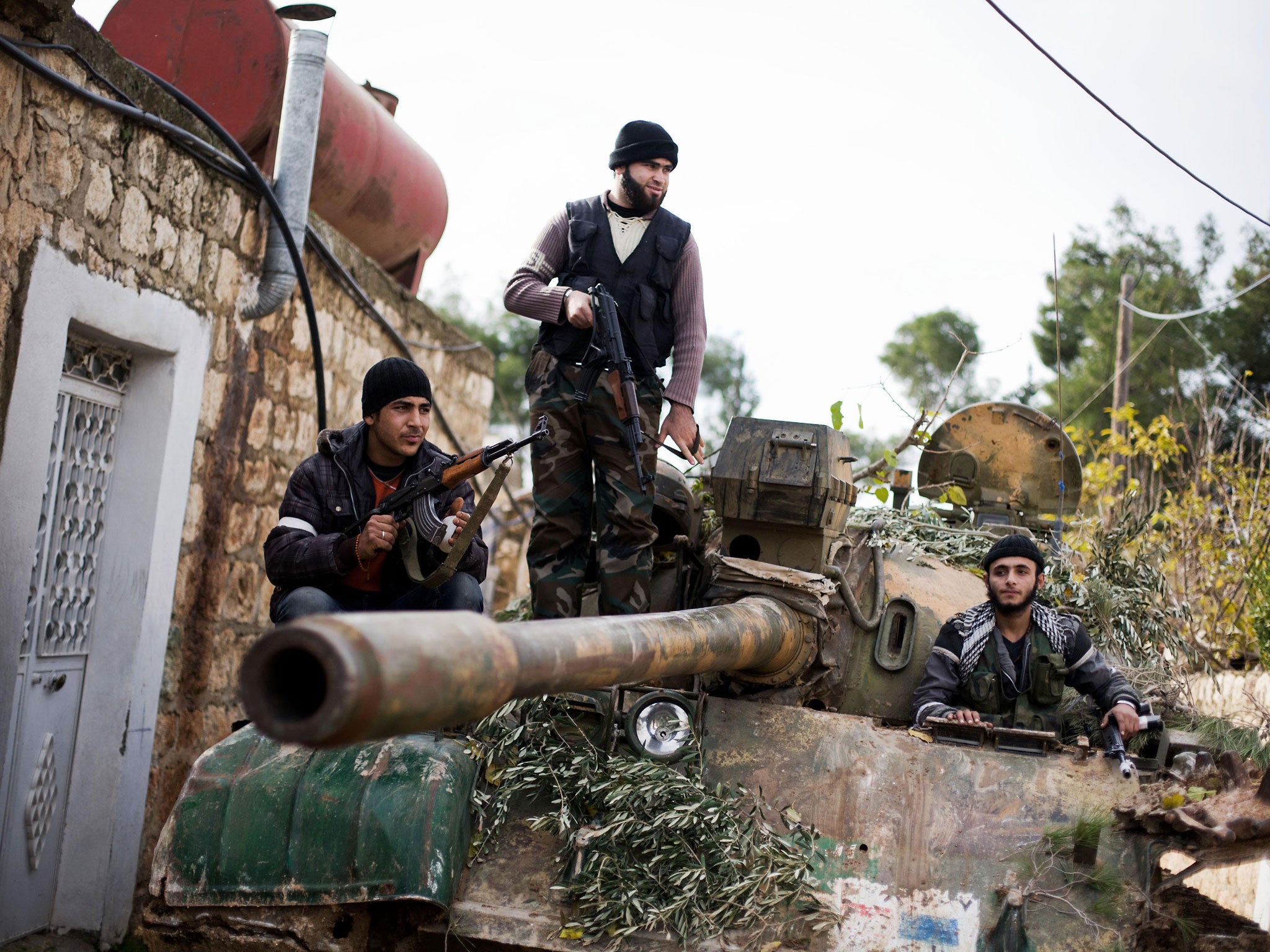Assad's sense of security shaken as Russia admits he could yet be ousted
Evacuation plans put in place as Nato chief agrees it is 'only a matter of time' until regime falls

Russia today conceded that a victory of the Syrian opposition is possible, putting in doubt the extent to which the Syrian government can depend on its most important ally.
“One must look the facts in the face,” said Moscow’s special envoy for Middle East Affairs, Mikhail Bogdanov, quoted by the state-run RIA news agency. “Unfortunately, the victory of the Syrian opposition cannot be ruled out.”
Mr Bogdanov said the Syrian government was “losing control of more and more territory” and that Moscow was preparing plans to evacuate Russian citizens if necessary. These would include many Russians who married Syrians during the two countries’ long alliance. It is not clear if this means any fundamental change in the Russian position or whether Mr Bogdanov is speaking of a possible rebel victory in the short or the long term. It was suggested yesterday that he was unaware of the presence of journalists when he made the remarks.
Anders Fogh Rasmussen, the Nato Secretary-General, separately said that it is “only a matter of time” before the regime falls. As part of his speech, he confirmed that the Syrian government had fired short-range missiles at opposition forces in the north of the country. On Syrian state television today, it was denied that the government had employed Scud missiles against FSA fighters, which had been suggested by American sources on Wednesday.
The Syrian deputy Foreign Minister Faisal Miqdad told The Independent in an interview this week that the Syrian government holds daily conversations with the Russians. He did not say that there had been any change in the Russian position which is to oppose foreign intervention in Syrian affairs and to block any military move by the US and its allies to take military action under the auspices of the UN as in Libya.
There have been a number of car bombs in and around and the capital in the last few days, including at least one today, but a government counter-offensive appears to have thrown back a rebel offensive launched several weeks ago. Although opposition sources claimed to hold a swathe of territory to the east and south east of Damascus there was traffic yesterday on the airport road, which the rebels have been seeking to close. The roads north to Homs and west to Beirut are open.
A car bomb has killed at least 16 men, women and children in Qatana, a town about 15 miles southwest of Damascus where many soldiers live, according to the state media. Rami Abdelrahman, head of the pro- opposition Syrian Observatory for Human Rights, put the death toll as 17, including seven children and two women. State television showed soldiers walking past a half-collapsed building, with rubble and twisted metal on the road.
Earlier in the week there was a bomb at the entrance to the Interior Ministry in which five people were killed including Abdullah Kayrouz, a member of parliament from the Syrian Social Nationalist Party. There have been other bombs in Jaramana, which largely inhabited by Druze and Christians, and an area with many Alawites living in it. The bombings may be aimed at keeping up the pressure on the government at a time when there is not much ground action in the capital. Many opposition strongholds like Douma and al-Qaboun have been heavily bombarded by artillery, forcing most of their population to take refuge in other parts of the city.
Diplomats in Damascus caution against imagining that the government is likely to fall in the immediate future, saying it still has considerable strength. Many people in Damascus are very worried that the capital could be reduced to the level of Aleppo which has been partially destroyed.
There is also fear that the rebels are increasingly sectarian, fundamentalist and likely to target not only Syria’s 2.5 million Alawites, many of them in the army and security forces, but anybody associated with the Syrian government.
At the same time the Russians may be distancing themselves from Bashar al-Assad and his regime as 130 countries recognise the opposition coalition as the legitimate government of Syria. Though Syrian officials deny that this diplomatic isolation makes any difference on the ground it is bound to enhance the international standing of the rebels.
Subscribe to Independent Premium to bookmark this article
Want to bookmark your favourite articles and stories to read or reference later? Start your Independent Premium subscription today.

Join our commenting forum
Join thought-provoking conversations, follow other Independent readers and see their replies